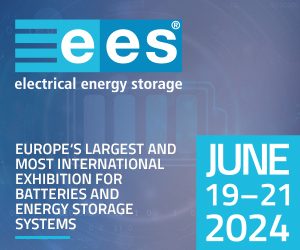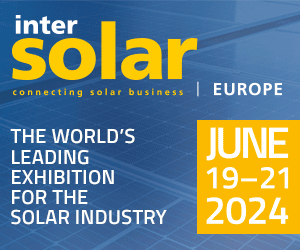KIT Installs Solar Modules of about 1 Megawatt Power / Research Cooperation with Module Manufacturer SOLARWATT / Additional Storage System Planned
Renewable energies and electric energy storage are central research topics of KIT. Now, KIT is transferring its theoretical findings into practice: KIT will build the largest photovoltaics facility for own consumption in Germany and produce energy from renewable sources for its own supply. In cooperation with the module manufacturer SOLARWATT, the new facility will also be used to study how service life and grid compatibility of photovoltaics systems can be enhanced.
“The photovoltaics facility for own consumption does not only represent a research project of KIT, it also marks the start of the energy turnaround for KIT’s own power supply,” says Professor Eberhard Umbach, President of KIT. “Moreover, this project makes sense from the economic point of view, as we are reducing our high power costs.”
“Modern photovoltaics modules based on German know-how are a stand-alone feature on the international market,” Detlef Neuhaus, Chief Executive Officer of SOLARWATT, says. “Joint research based on a facility of this size in cooperation with KIT enables us to maintain our knowledge lead.”
“It is a primary mission of KIT to develop viable technologies and accelerate commercialization,” explains Dr. Peter Fritz, Vice President for Research and Innovation at KIT. “Thanks to cooperation with SOLARWATT, we can demonstrate reasonable integration of photovoltaics in the overall system. This is indispensable for the success of the energy turnaround.”
The new photovoltaics facility for own consumption represents KIT’s investment in the future. Increasing energy costs presently are a big burden for all research institutions. This is particularly true for research using large-scale devices. This money is then lacking in the research budget for investments and staff. By using renewable energy sources, KIT can sustainably limit its power costs: In a first phase, photovoltaics modules of about 1 MW power will be installed and commissioned on the KIT premises by fall 2013. Over a period of one year, about 2% of KIT’s power consumption will be covered by this facility. In total, about EUR 1.5 million are invested. Annual costs for energy supply will be reduced by about EUR 200,000. The facility will have a service life of about 20 years.
“As a public research institution, we are not interested in competing with utilities,” emphasizes Dr. Olaf Wollersheim, who manages the first project phase at KIT. “The photovoltaics facility will not only be used to cover own power consumption, but also to conduct research.” In cooperation with SOLARWATT, a solar module field laboratory will be established. Solar modules of the latest state of the art will be installed, such as glass-glass modules, and studied with respect with their energy yield and aging behavior under real operation conditions. Research will also focus on how the angle of inclination and direction of the modules influences the production of solar power. It is aimed at developing regenerative energy systems of increased energy efficiency and longer service life of up to 30 years. Both will contribute to further reducing the costs of solar power.
“Photovoltaics only is one element of an entirely regenerative energy system for Germany, which stores electric power, supplies it in a need-tailored manner, and hence, reduces grid load,” explains project manager Wollersheim. Now, KIT possesses a unique infrastructure, in which novel electricity storage systems, intelligent power electronics, and system controls can be studied, developed together with German industry partners, and tested under real operation conditions.
Karlsruhe Institute of Technology (KIT) is one of Europe’s leading energy research establishments. Research, education, and innovation at KIT foster the energy turnaround and reorganization of the energy system in Germany. KIT links excellent competences in engineering and science with know-how in economics, the humanities, and social science as well as law. The activities of the KIT Energy Center are organized in seven topics: Energy conversion, renewable energies, energy storage and distribution, efficient energy use, fusion technology, nuclear power and safety, and energy systems analysis. Clear priorities lie in the areas of energy efficiency and renewable energies, energy storage technologies and grids, electric mobility, and enhanced international cooperation in research.
Karlsruhe Institute of Technology (KIT) is a public corporation according to the legislation of the state of Baden-Württemberg. It fulfills the mission of a university and the mission of a national research center of the Helmholtz Association. Research activities focus on energy, the natural and built environment as well as on society and technology and cover the whole range extending from fundamental aspects to application. With about 9000 employees, including nearly 6000 staff members in the science and education sector, and 24000 students, KIT is one of the biggest research and education institutions in Europe. Work of KIT is based on the knowledge triangle of research, teaching, and innovation.more
For more information: http://www.kit.edu/visit/pi_2013_13833.php








